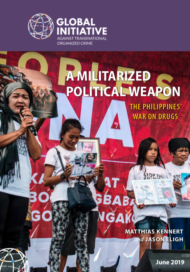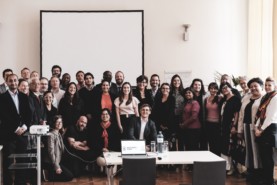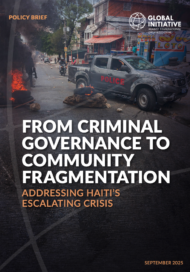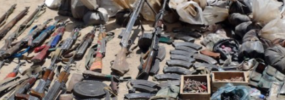Posted on 05 Jun 2019
Since July 2016, communities in the Philippines have been subjected to a violent nationwide police crackdown on illegal drugs, which has courted international condemnation and prompted a possible investigation to be opened by the International Criminal Court. The Philippine leader, Rodrigo Duterte, who took office as president in June 2016, rose to political power on the back of promises to end the country’s ‘drug crisis’.
The illicit drug economy of the Philippines exists – and thrives – owing to the complicity of law-enforcement agents, politicians and the military with the drug-trade networks. Ironically, the very people who are tasked with tackling the country’s illicit drug trades are instead colluding and cooperating with drug traders for their own financial gain. Police officers, soldiers and politicians of all ranks have assembled a protective net around the country’s drug markets for their own economic benefit, in what has become a highly enmeshed narco-political web. The chief of the Philippines National Police (PNP) has claimed that more than 300 of his officers are conspirators in the drug business, while the president of the Philippines, Duterte, in 2016 named five police generals as playing a central role in sustaining the drug trade. The sheer scale of this collusion led some members of the security sector to comment: ‘When the [drug war] campaign started, we realized that the problem was bigger than expected, with many branches of the political system deeply entrenched in the drug trade.’




